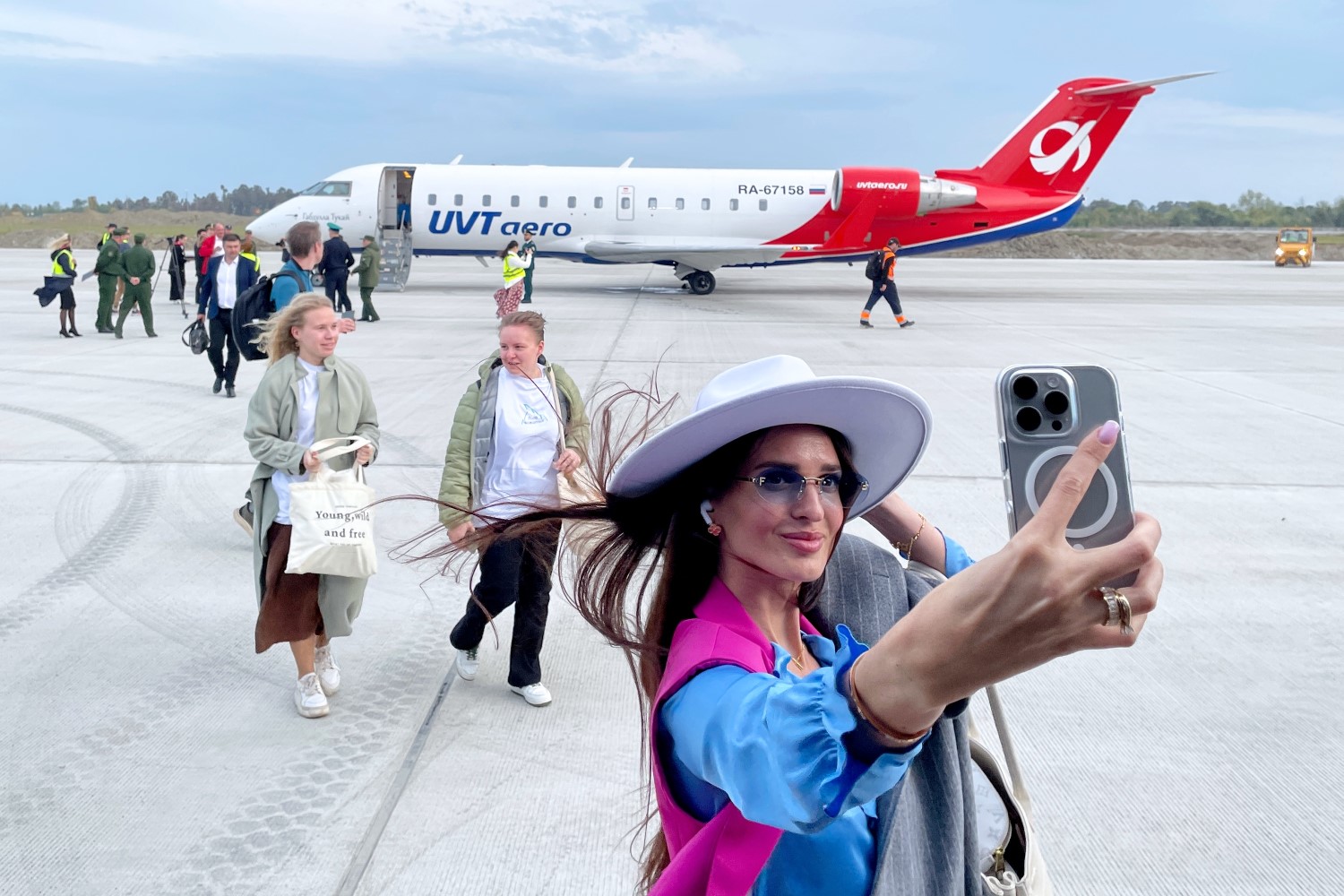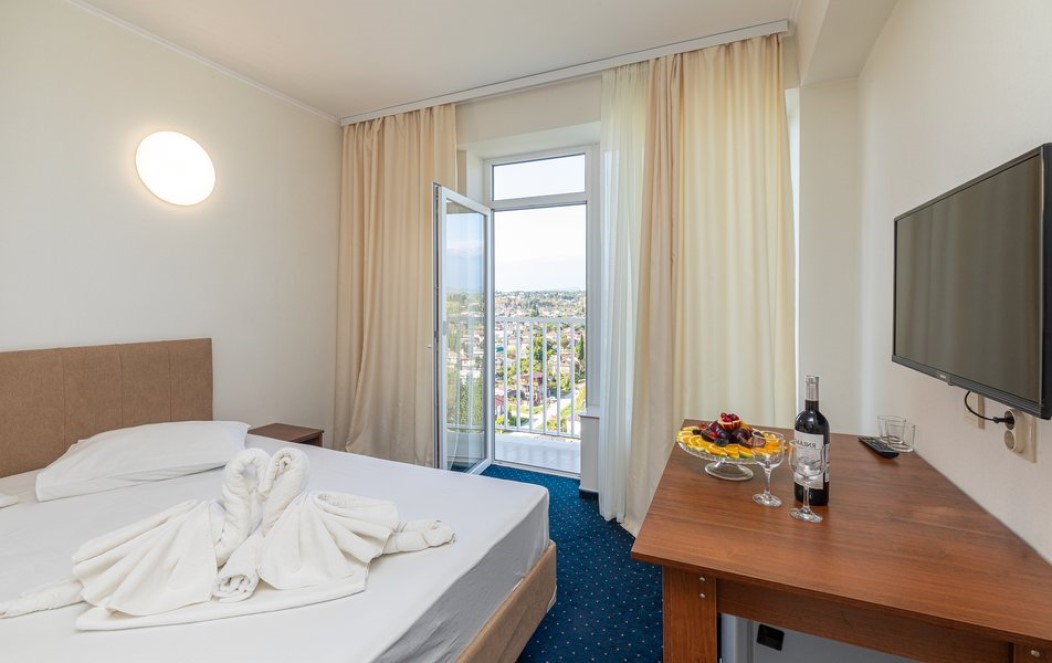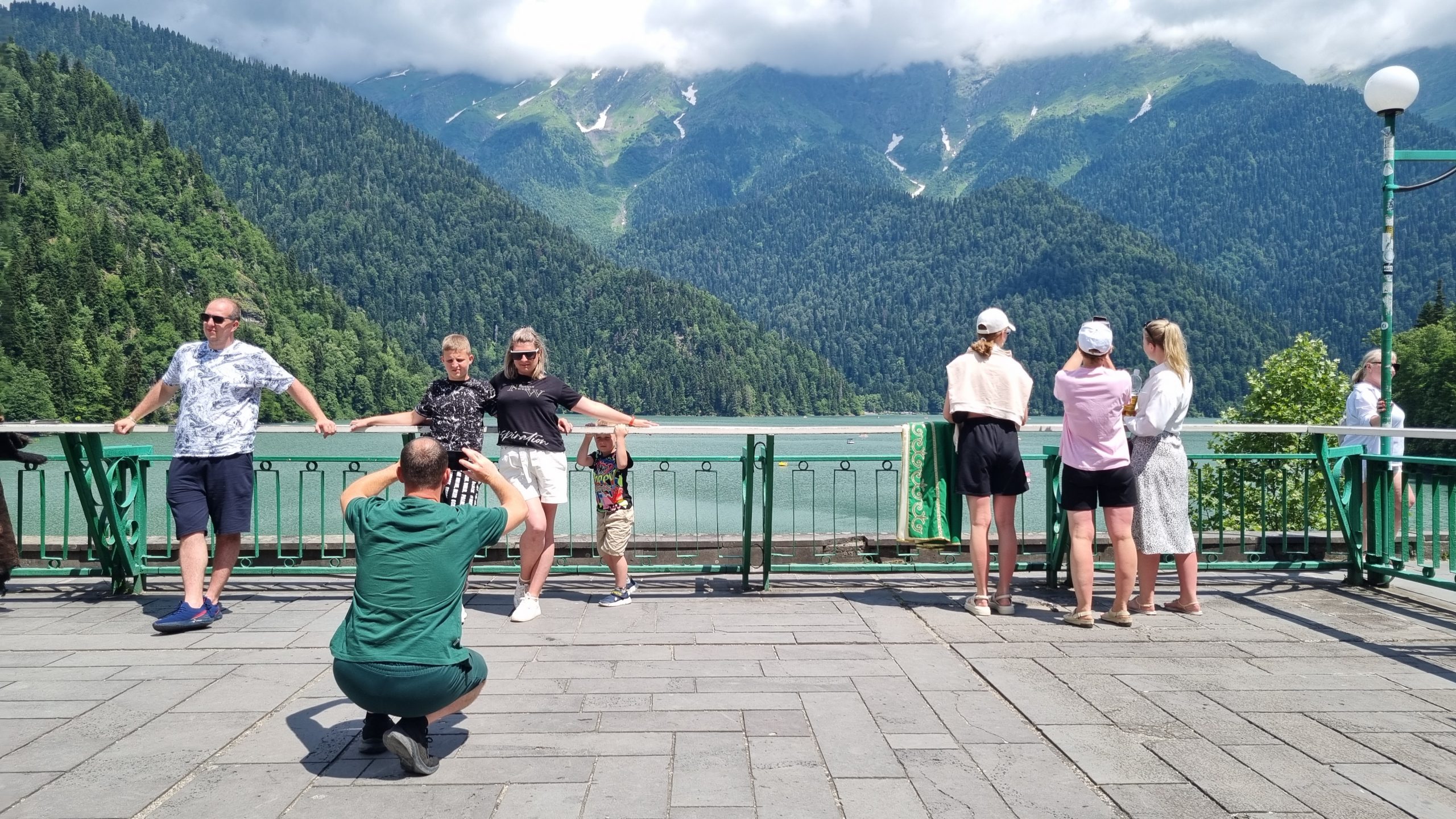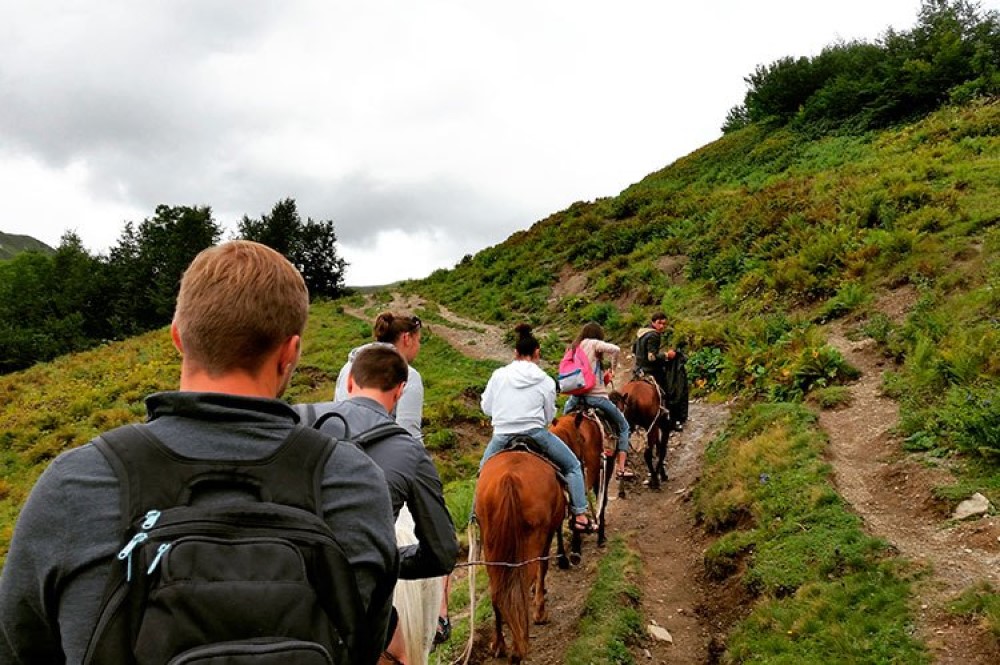“Bad season”: Why are Abkhazia’s hotel owners losing money - and what’s Russia’s role?
Russia and the price dumping in Abkhazia
Mid-July is usually the peak of the tourist season in Abkhazia – but not this year. According to local business owners, the season is only just beginning to pick up.
Meanwhile, scandals in the tourism sector continue, along with debates over who’s to blame and what should be done.
At the center of this tourism drama stands the Russian tour operator Biblio-Globus.
Tourism is one of Abkhazia’s main sources of income, with around a quarter of the local population involved in the sector in one way or another. The overwhelming majority of tourists in Abkhazia are Russian.
To help boost the tourist flow, several direct flights from Russia to Abkhazia were launched starting May 1.
Where have the tourists gone?
Mayak district is the most tourist-oriented area in Sukhumi. Lined with private homes stretching along the coast, nearly every house either rents out rooms to visitors or is fully converted into a mini-hotel (often unofficially). But many of these places now sit empty — as do hotels in other parts of the city.
“In June and early July, we had no guests at all. I think it’s due to the weather, the general situation, and the information war. Many people are afraid to fly or take the train, fearing terrorist attacks.
We also decided not to visit our relatives in Moscow, even though we had planned to in June. But the overall atmosphere feels tense,” says the owner of a small guesthouse in the Sinop district.
According to her, local hotel owners had suspected as early as February–March that the season would flop, when Russian TV channels were full of reports about alleged terrorists in Abkhazia and discouraged people from visiting the region.
“The Association of Tour Operators of Russia advised tourists not to travel to Abkhazia, saying it was unsafe. And they did this right when people usually start planning their summer vacations.
On top of that, the ruble strengthened significantly, so many people could afford trips to Turkey, Egypt, and other popular destinations,” the hotel owner explains.
“Save at the hotel – spend in the restaurant”
Still, many local hoteliers and travel agencies blame the failed season mainly on the Russian tour operator Biblio-Globus.
According to them, the company shamelessly dumps prices by booking rooms at a fixed annual rate and then reselling them far below market value.
For example, in April 2025, rooms with full board at the hotel Strana Dushi (Land of the Soul) were offered for next to nothing – just $2–3 per night.
Hotel owner Mikheil Sichinava says those rock-bottom rates were only meant for the absolute low season, as a way to attract tourists unfamiliar with Abkhazia.
At a parliamentary session, Sichinava argued that even if a tourist books a cheap room, they’ll still spend money in local cafes and restaurants, buy souvenirs and wine – which ultimately benefits the local economy.
Angela (name changed), who has been renting six guest rooms in an extension behind her house in Mayak for three years, says she’s in no rush to register as a business.
“I’m not going to pay taxes until I’ve recovered all the costs of building these rooms,” she says.
According to Angela, because rooms at Strana Dushi are being rented out at such low prices, other hotel owners have been forced to lower their prices too – and suffer losses.
In the summer of 2024, rooms in Mayak were rented for an average of 2,500–5,000 rubles ($33–66) per night, depending on the amenities. This season, prices have dropped to 1,500–3,000 rubles ($20–40) per night.
According to Bris Sadzhat-Ipa, head of the travel agency Elit Tour, many hotels are refusing to work with Biblio-Globus because each season it pressures them to lower room rates.
“This is a basic market takeover. In five years, major Russian businessmen will buy up the entire coastal area in Abkhazia. Local businesses will literally have no space left here,” Sadzhat-Ipa predicts.
Noodles with a taste of scandal
Mikhail Sichinava’s optimism was not shared by tourism ministry employee Kristina Lakerbaya, who believed that a tourist drawn by $3 rooms would only be able to afford instant noodles like Doshirak, not local food, restaurants, or souvenirs.
She voiced this opinion at a roundtable discussion, sparking a scandal that ended with her dismissal.
The Russian side was outraged and claimed its best feelings had been hurt. However, according to a hotel booking department employee, tourists themselves didn’t take it personally:
“Not a single booking was canceled because of this scandal. People canceled trips because someone in the family was barred from traveling abroad due to changes in workplace security clearance, or someone got sick, or decided to go to Egypt for the same price… But not because they were offended by Doshirak.”
According to a resident of the resort town of Gagra, it’s time to accept the fact that most Russian tourists come to Abkhazia primarily for the low prices:
“Let’s be honest: we don’t have the best sea or beaches, we don’t have luxury hotels or budget ones that fully meet the needs of a modern traveler. We don’t have hotels suited for a proper vacation with small children.
Yes, we have some attractions, but we can’t compete with Turkey or Egypt – their landmarks are better known and more impressive.
So our only real appeal is affordability. Blaming people who come here and try to save money is just unreasonable. They’ve spent the whole year saving up to visit us.”
Lighting stars to raise prices
Tourism Minister Astamur Logua believes it’s time to launch a hotel classification system in Abkhazia, so that hotels can charge fair and appropriate prices for their services.
“We discussed this at the level of the intergovernmental commission. The Russian side is ready to support us in every possible way. I hope we’ll begin this process by the end of the year.
A unified registry will be created, so we can clearly understand how many stars each hotel has. Then hotel owners themselves will be motivated to improve the quality of their service,” Logua said during a meeting with Abkhazian lawmakers.
He also urged small and medium-sized tourism businesses to focus on uniqueness – for example, by developing new excursion routes.
Toponyms, terminology, views and opinions expressed by the author are theirs alone and do not necessarily reflect the views and opinions of JAMnews or any employees thereof. JAMnews reserves the right to delete comments it considers to be offensive, inflammatory, threatening or otherwise unacceptable.
News in Abkhazia























